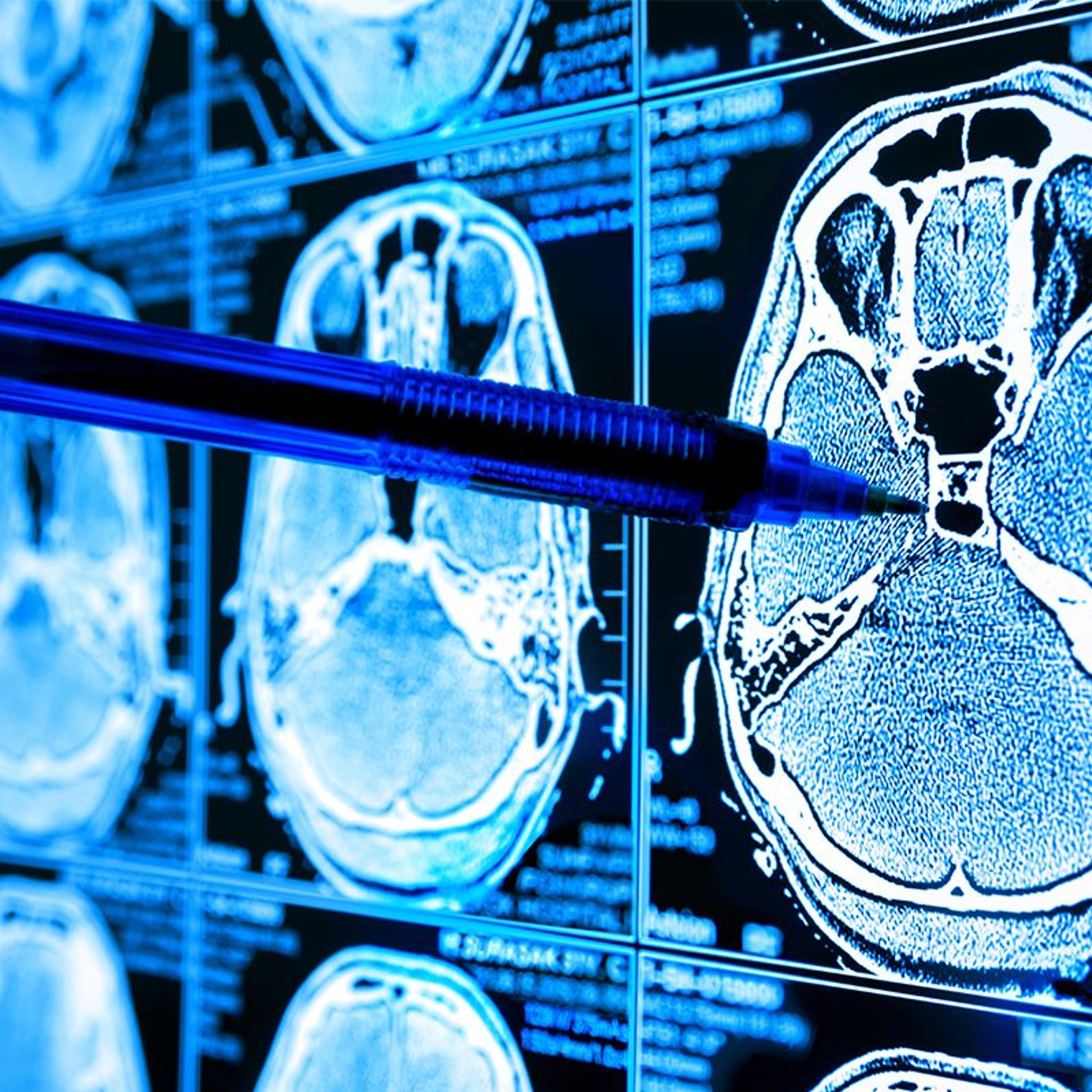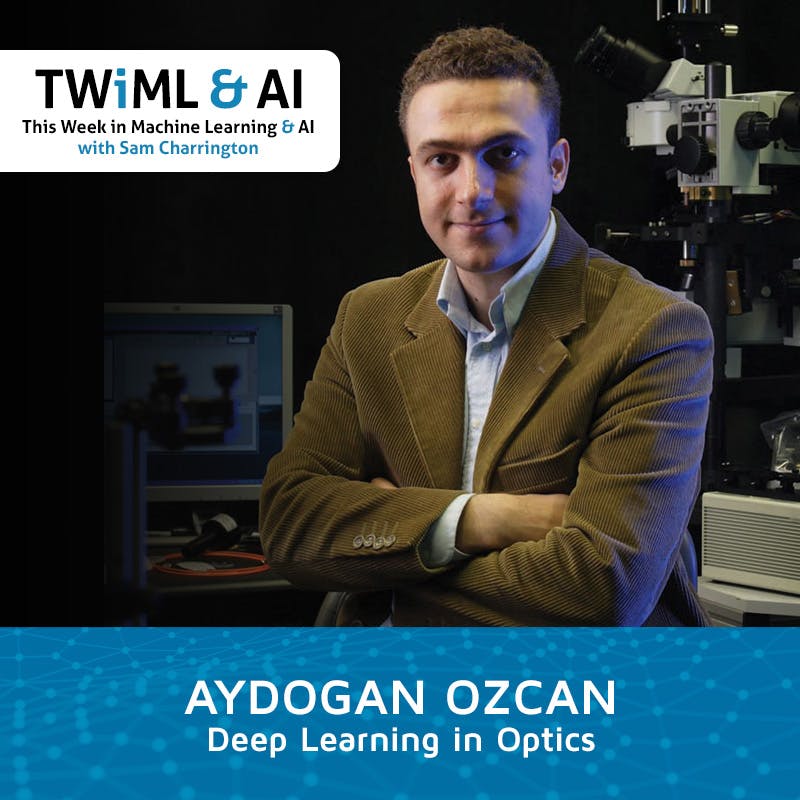Shows
 NYUAD InstituteAI in Biomedical Imaging: Transforming Microscopy and DiagnosticsThis talk explores the use of deep neural networks in advancing computational microscopy and biomedical diagnostics. It highlights innovative methods for generating histological stains digitally, providing a faster, more cost-effective, and environmentally friendly alternative to traditional techniques. The discussion will cover virtual staining techniques that create various stains from label-free microscopic images and methods for transforming already stained images into different types. Additionally, it introduces AI-enabled paper-based sensors for quick and efficient biomarker detection using a mobile phone.
Speaker
Aydogan Ozcan, Chancellor’s Professor and the Volgenau Chair for Engineering Innovation, UCLA2024-10-021h 09
NYUAD InstituteAI in Biomedical Imaging: Transforming Microscopy and DiagnosticsThis talk explores the use of deep neural networks in advancing computational microscopy and biomedical diagnostics. It highlights innovative methods for generating histological stains digitally, providing a faster, more cost-effective, and environmentally friendly alternative to traditional techniques. The discussion will cover virtual staining techniques that create various stains from label-free microscopic images and methods for transforming already stained images into different types. Additionally, it introduces AI-enabled paper-based sensors for quick and efficient biomarker detection using a mobile phone.
Speaker
Aydogan Ozcan, Chancellor’s Professor and the Volgenau Chair for Engineering Innovation, UCLA2024-10-021h 09 The MicroscopistsAydogan Ozcan (UCLA)#59 — Aydogan Ozcan is Chancellor’s Professor and HHMI Professor in the Department of Electrical and Computer Engineering at UCLA Samueli School of Engineering. Aydogan joins Peter to talk about how advances in imaging technology could make security screening less invasive, the importance of communicating science to the public, and why you need to take ownership of your research.Watch or Listen to all episodes of The Microscopists here: https://themicroscopists.bitesizebio.com/2023-01-061h 05
The MicroscopistsAydogan Ozcan (UCLA)#59 — Aydogan Ozcan is Chancellor’s Professor and HHMI Professor in the Department of Electrical and Computer Engineering at UCLA Samueli School of Engineering. Aydogan joins Peter to talk about how advances in imaging technology could make security screening less invasive, the importance of communicating science to the public, and why you need to take ownership of your research.Watch or Listen to all episodes of The Microscopists here: https://themicroscopists.bitesizebio.com/2023-01-061h 05 All Things PhotonicsNathalie Picque: From Frequency Combs to Holography — and Everything in BetweenFrequency combs have revolutionized time and frequency metrology, making stops along the way to key developments in optical clocks, and, as it turns out, broadband spectroscopy. In a conversation that veers from interferometry to holography, and optoelectronics to solid-state lasing, Nathalie Picque from Max Planck Institute for Quantum Optics shares insights about her latest research. UCLA's Aydogan Ozcan is back for the second part of a conversation about "Terahertz pulse shaping using diffractive surfaces."
Sponsored by:
COMSOL - www.comsol.com
All Things Photonics is produced by Photonics Media and airs biweekly, on Tuesdays. F...2021-03-0252 min
All Things PhotonicsNathalie Picque: From Frequency Combs to Holography — and Everything in BetweenFrequency combs have revolutionized time and frequency metrology, making stops along the way to key developments in optical clocks, and, as it turns out, broadband spectroscopy. In a conversation that veers from interferometry to holography, and optoelectronics to solid-state lasing, Nathalie Picque from Max Planck Institute for Quantum Optics shares insights about her latest research. UCLA's Aydogan Ozcan is back for the second part of a conversation about "Terahertz pulse shaping using diffractive surfaces."
Sponsored by:
COMSOL - www.comsol.com
All Things Photonics is produced by Photonics Media and airs biweekly, on Tuesdays. F...2021-03-0252 min All Things PhotonicsDirk Englund: Quantum Photonics: Breakthroughs and LimitationsThe latest in quantum computing and quantum optics is our focus, as Dirk Englund from MIT's Quantum Photonics Laboratory shares his insights on the latest in materials processing, PICS, photonics entrepreneurship, and more. UCLA's Aydogan Ozcan talks about his latest work, "Terahertz pulse shaping using diffractive surfaces," in Part One of a two-part segment.
Sponsored by:
MKS Instruments - www.newport.com
Hamamatsu Corporation - www.hamamatsu.com
All Things Photonics is produced by Photonics Media and airs bi-weekly, on Tuesdays. Find links to the stories mentioned in the episode on our website...2021-02-1642 min
All Things PhotonicsDirk Englund: Quantum Photonics: Breakthroughs and LimitationsThe latest in quantum computing and quantum optics is our focus, as Dirk Englund from MIT's Quantum Photonics Laboratory shares his insights on the latest in materials processing, PICS, photonics entrepreneurship, and more. UCLA's Aydogan Ozcan talks about his latest work, "Terahertz pulse shaping using diffractive surfaces," in Part One of a two-part segment.
Sponsored by:
MKS Instruments - www.newport.com
Hamamatsu Corporation - www.hamamatsu.com
All Things Photonics is produced by Photonics Media and airs bi-weekly, on Tuesdays. Find links to the stories mentioned in the episode on our website...2021-02-1642 min The TWIML AI Podcast (formerly This Week in Machine Learning & Artificial Intelligence)Deep Learning in Optics with Aydogan OzcanToday we’re joined by Aydogan Ozcan, Professor of Electrical and Computer Engineering at UCLA, exploring his group's research into the intersection of deep learning and optics, holography and computational imaging. We specifically look at a really interesting project to create all-optical neural networks which work based on diffraction, where the printed pixels of the network are analogous to neurons. We also explore practical applications for their research and other areas of interest.2019-03-0742 min
The TWIML AI Podcast (formerly This Week in Machine Learning & Artificial Intelligence)Deep Learning in Optics with Aydogan OzcanToday we’re joined by Aydogan Ozcan, Professor of Electrical and Computer Engineering at UCLA, exploring his group's research into the intersection of deep learning and optics, holography and computational imaging. We specifically look at a really interesting project to create all-optical neural networks which work based on diffraction, where the printed pixels of the network are analogous to neurons. We also explore practical applications for their research and other areas of interest.2019-03-0742 min UC Office of the President (Audio)Cell Phone Science Saving Lives - UCTV Prime CutsIn developing countries, more than 3.4 million people die each year due to water-related diseases, while the U.S. and Europe routinely face E. coli and salmonella contamination in their food supplies. In response, UCLA engineering professor Aydogan Ozcan developed the first-of-its-kind microscopy tool that enables public health workers to test for harmful bacteria in the field using only a cell phone. Series: "UCTV Prime cuts" [Health and Medicine] [Science] [Show ID: 24210]2012-11-0100 min
UC Office of the President (Audio)Cell Phone Science Saving Lives - UCTV Prime CutsIn developing countries, more than 3.4 million people die each year due to water-related diseases, while the U.S. and Europe routinely face E. coli and salmonella contamination in their food supplies. In response, UCLA engineering professor Aydogan Ozcan developed the first-of-its-kind microscopy tool that enables public health workers to test for harmful bacteria in the field using only a cell phone. Series: "UCTV Prime cuts" [Health and Medicine] [Science] [Show ID: 24210]2012-11-0100 min UC Office of the PresidentCell Phone Science Saving Lives - UCTV Prime CutsIn developing countries, more than 3.4 million people die each year due to water-related diseases, while the U.S. and Europe routinely face E. coli and salmonella contamination in their food supplies. In response, UCLA engineering professor Aydogan Ozcan developed the first-of-its-kind microscopy tool that enables public health workers to test for harmful bacteria in the field using only a cell phone. Series: "UCTV Prime cuts" [Health and Medicine] [Science] [Show ID: 24210]2012-11-0100 min
UC Office of the PresidentCell Phone Science Saving Lives - UCTV Prime CutsIn developing countries, more than 3.4 million people die each year due to water-related diseases, while the U.S. and Europe routinely face E. coli and salmonella contamination in their food supplies. In response, UCLA engineering professor Aydogan Ozcan developed the first-of-its-kind microscopy tool that enables public health workers to test for harmful bacteria in the field using only a cell phone. Series: "UCTV Prime cuts" [Health and Medicine] [Science] [Show ID: 24210]2012-11-0100 min PopTech Audio: PopCastsAydogan Ozcan: Mobile microscopesUCLA professor Aydogan Ozcan has discovered how to convert cellphones into microscopes by relying on shadow imaging instead of expensive optics. In time, the ability to conduct tests and detect infectious diseases by leveraging mobile technologies in resource-poor settings could transform public health.
ee.ucla.edu/2010-08-2608 min
PopTech Audio: PopCastsAydogan Ozcan: Mobile microscopesUCLA professor Aydogan Ozcan has discovered how to convert cellphones into microscopes by relying on shadow imaging instead of expensive optics. In time, the ability to conduct tests and detect infectious diseases by leveraging mobile technologies in resource-poor settings could transform public health.
ee.ucla.edu/2010-08-2608 min